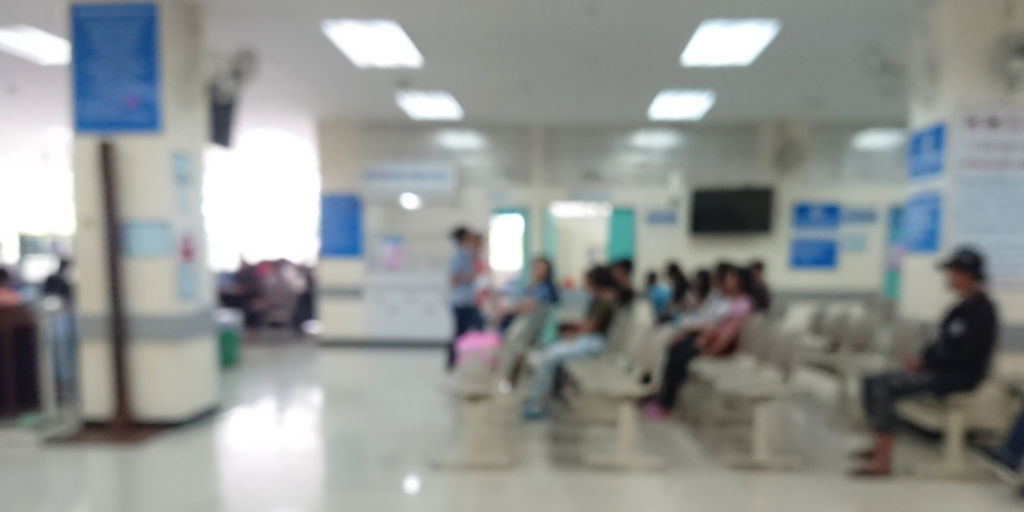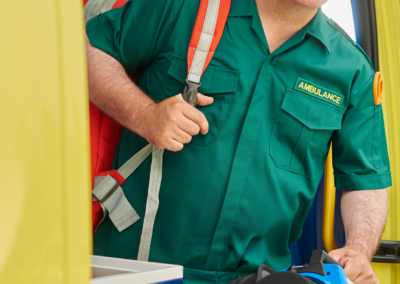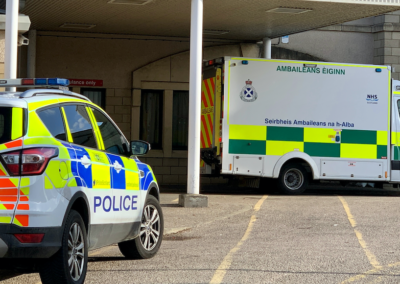‘Patients seen through the SDEC model often have a greatly reduced length of stay compared to ED.’
Since December 2021, Primary Care Clinicians in the Doncaster and Bassetlaw area and ambulance staff from Yorkshire Ambulance Service NHS Trust have had access to a Same Day Emergency Care (SDEC) line via Consultant Connect, answered by clinicians at Doncaster and Bassetlaw Teaching Hospitals NHS Foundation Trust (DBTH).
Monthly SDEC line stats* (average):
82 calls per month | Calls answered in 22 seconds | 82% call connection rate
Alice Brockwell, Advanced Clinical Practitioner (ACP) Lead for Divisional Medicine at DBTH, answers calls via the SDEC line. We asked Alice to tell us more. You can read our interview with Alice below or click here to download the PDF version.
1. What was your initial aim in setting up your SDEC services in Doncaster?
‘The SDEC service was put in place in Doncaster in December 2021, prior to me being appointed into my current role. The initial aim of SDEC is to reduce admissions into hospital beds for patients who could be safely managed at home.
Through SDEC, we are able to navigate patients to the right clinician to manage their needs at the right time and in the right place, to get them the response they need the first time. We work with the patient to optimise the best outcomes for them, and we identify future needs and grow the service to meet these.‘
2. What have been the benefits of having SDEC available via Consultant Connect?
‘The benefits of Consultant Connect lie in the rapid advice available via the service. When community practitioners call the SDEC line, it helps ensure the patients are then signposted to the right place.
All the data, including call volumes and outcomes, are captured when clinicians use the service, which is really helpful to support in developing the service or providing feedback.’
3. What was the SDEC pathway for Primary Care clinicians and ambulance clinicians before it was made available to them via Consultant Connect?
‘Before Consultant Connect, Primary Care clinicians would need to contact on-call teams via a bleep system, often leading to long waits prior to their calls being answered. Because of these long waits, Primary Care clinicians and ambulance staff would often not place the call at all, and patients would be directly sent to ED. This resulted in high attendances to ED, often obstructing the appropriate patient’s journey.‘
4. Has the SDEC Consultant Connect service improved operations and the patient experience?
‘Yes. Clinicians can speak with the appropriate person, often gaining near-immediate insight and advice into the management of the patient sitting in front of them, which can result in an avoidance of an unnecessary admission.
When accepting the patient, this gives the patient a more appropriate journey for their health needs and less time wasted in having to tell multiple people their history before finally getting to the right clinician. The service helps improve flow as not every patient is needed to be seen that day, and it also highlights other areas of services of which patients can be signposted too.‘
5. Why is it useful to receive calls from other clinicians either in Primary Care or from paramedics, or from across different health disciplines?
‘It’s useful as it improves patient flow away from ED and ensures a more appropriate journey for the patient. It gives us the opportunity to clarify the history and give advice which prevents admissions.’
6. Can you share an example of how answering a call from a clinician via the service benefited the patient?
‘Patients seen through the SDEC model often have a greatly reduced length of stay compared to ED.
A recent example was that of a paramedic who was with a patient presenting with chest pain. Traditionally the patient would have been immediately taken to ED; however, the paramedic used the service to call the SDEC line.
The team discussed the patient’s history with the paramedic as well as their presenting symptoms, and following this and the ECG, the patient was taken to SDEC, reducing the need for them to go to ED and wait to be seen. This reduced the patient’s time to be seen by a clinician. Management of the chest pain was implemented by the specialty, and correct investigations were obtained ahead of the onward referral, making for a more streamlined patient admission/discharge.‘
7. What would you say to clinicians who have access to the SDEC line via Consultant Connect but have yet to use it?
‘I would strongly encourage them to try and use it! We endeavour to be helpful, and if we don’t accept the patient, we will signpost them to the most appropriate service.’
*data from January – May 2023.
If you have any questions about how Consultant Connect could support your NHS area, please call us on 01865 261 467, or email hello@consultantconnect.org.uk.
Related materials:





